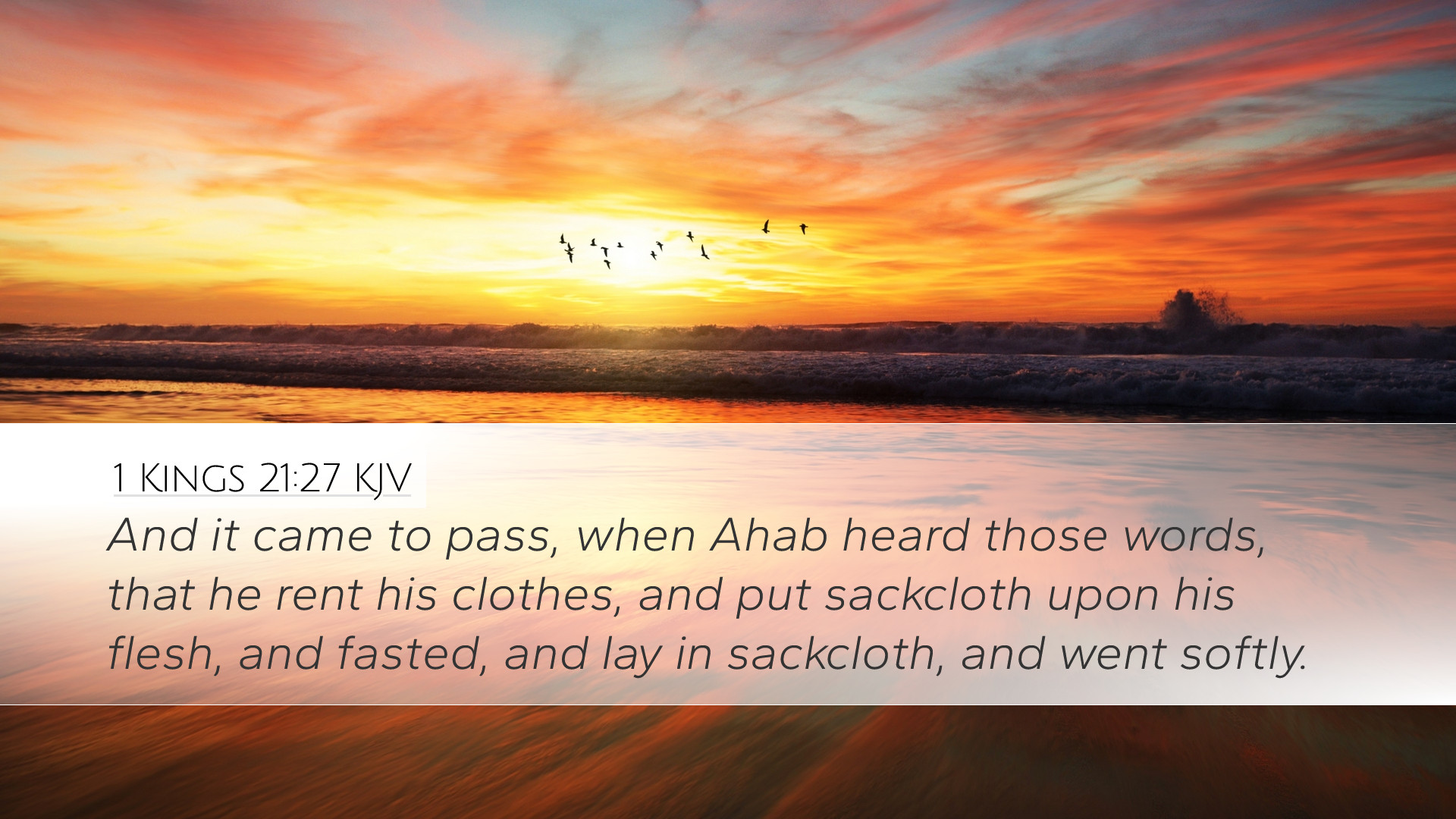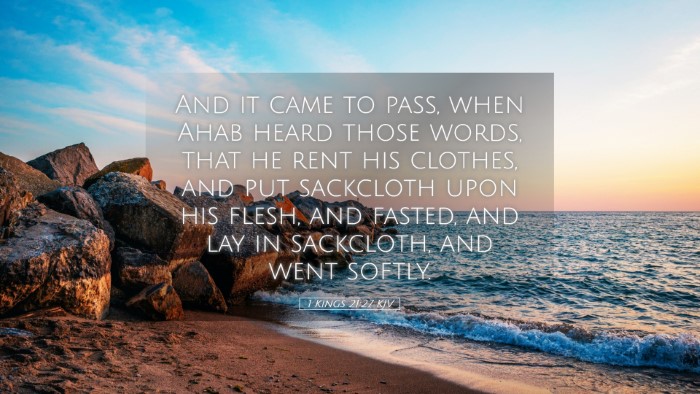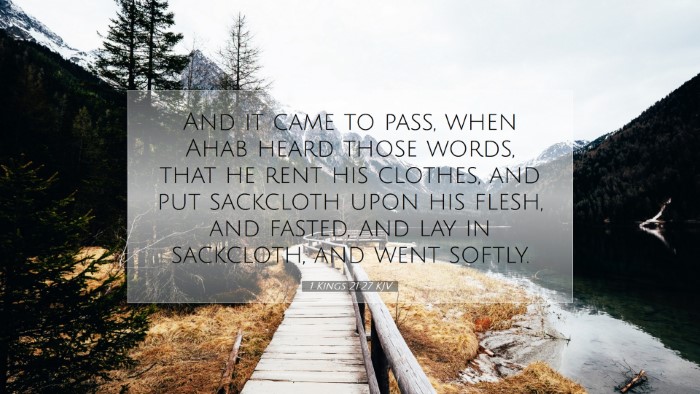Commentary on 1 Kings 21:27
Bible Verse: "And it came to pass, when Ahab heard those words, that he rent his clothes, and put sackcloth upon his flesh, and fasted, and lay in sackcloth, and went softly." (1 Kings 21:27)
Introduction
This verse comes at the conclusion of the narrative concerning Ahab and Naboth's vineyard, showcasing a critical moment of repentance and sorrow for sin. The context is vital as it highlights Ahab’s response to God's judgment through Elijah. Various commentaries provide deeper insights into the significance of Ahab’s actions and the implications for understanding repentance in the framework of the Old Testament.
Ahab's Reaction
Ahab's reaction here is portrayed as one of sorrow and penitence. According to Matthew Henry, Ahab's tearing of his clothes signifies a visible expression of grief, linking the act of sorrow to a deeper spiritual understanding. This act is a physical manifestation of his internal state, suggesting that genuine repentance often requires outward expressions.
Albert Barnes notes that Ahab’s sorrow, marked by fasting and donning sackcloth, represents a significant acknowledgment of God’s judgment. Sackcloth was traditionally worn during times of mourning or deep remorse, indicating a desire to humble oneself before God. The act of fasting also suggests an earnest seeking of God's mercy, reflecting a heart troubled by the consequences of sin.
The Significance of Sackcloth and Fasting
- Symbolism: Sackcloth is a symbol of mourning and humility (Genesis 37:34, Job 16:15) and represents an acknowledgment of one's sinfulness before God.
- Fasting: The act of fasting in biblical context often accompanies deep repentance (Joel 2:12-13), indicating a complete turning away from sin and a desire for reconciliation with God.
The Contrast with Previous Actions
This verse starkly contrasts with Ahab's previous behavior as he sought to acquire Naboth's vineyard through deceit and violence. Adam Clarke points out that Ahab's sorrow indicates a moment of clarity where he recognizes the gravity of his sin. Unlike his prior actions filled with selfish ambition and covetousness, this moment reflects a vulnerable and humbled heart.
Lessons on Repentance
The narrative teaches several important lessons on true repentance:
- Awareness of Sin: A true understanding of one's sin brings about genuine sorrow. Ahab's reaction shows that even the most flawed can come to a point of recognizing their wrongs.
- Physical Expressions of Sorrow: In the biblical tradition, physical manifestations of grief and sorrow, such as fasting and wearing sackcloth, are integral to the process of repentance.
- The Hope for Forgiveness: The act of repenting, as demonstrated by Ahab, does not guarantee immediate restoration but reflects a desire to be right with God, which paves the way for forgiveness (2 Chronicles 7:14).
Theological Reflections
Theologically, Ahab’s response serves as a profound illustration of God's mercy and the possibility of redemption, even for the most wicked. God desires that all would come to repentance (2 Peter 3:9), and Ahab's actions demonstrate that a heart turned towards God can lead to restoration.
Henry further emphasizes that even though Ahab repents, there remains the consequence of his earlier actions. The narrative serves to remind the reader that while repentance is crucial, it does not always erase the temporal consequences of sin. The tensions between divine judgment and mercy are foundational to understanding the character of God as portrayed in the Old Testament.
Conclusion
In summary, 1 Kings 21:27 encapsulates a pivotal moment in Ahab's life and illustrates the complexities of repentance. Through a careful study of Ahab's grief and sincere actions of seeking God, we glean profound truths applicable to our lives as believers. As pastors, students, and scholars engage with this text, it serves as a reminder of the importance of humility, the need for repentance, and the hope that God's mercy brings, even in the face of deep sin.
As we reflect on Ahab’s sorrow, let us consider our own lives and the ways we seek to express our repentance. Are we merely going through the motions, or are we genuinely seeking God's face in humility? May our lives testify to the truth that God hears the cries of the contrite and broken-hearted.


